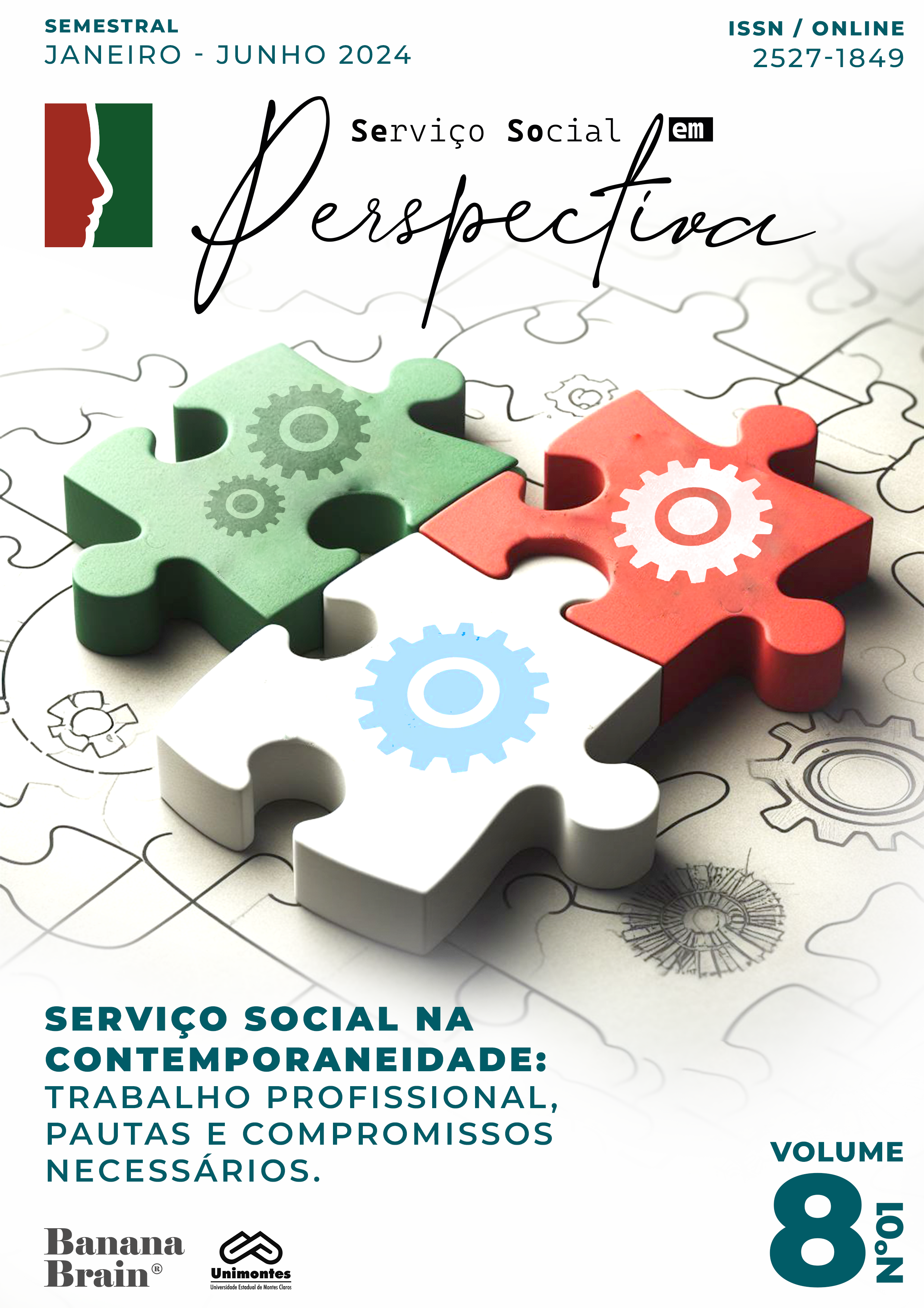A EXPERIÊNCIA DA EXTENSÃO UNIVERSITÁRIA ENQUANTO POTÊNCIA DE FORMAÇÃO HUMANA DE MULHERES TRABALHADORAS DA UNIVERSIDADE DE VASSOURAS, CAMPUS MARICÁ
DOI:
10.46551/rss202416Keywords:
PortuguêsAbstract
The present work aims to report the extension action carried out by the University of Vassouras, on the Maricá campus, through the Social Service Assistance Center (CASS), in its Nucleus of Extensionist Activity (NAE) Woman, aimed mainly at assisting women. black and indigenous. The intervention concerns the activity carried out in the month of October, of the year two thousand and twenty-three, with thirty female workers from the aforementioned university, in reference to the breast cancer prevention campaign, of the Ministry of Health, with the objective of enable a critical debate on the social construction of the formative process of becoming a woman, in the face of the alienating, misogynistic and sexist context of capitalist society. The activity took place from a critical perspective of reading society, through collective debate, fostered through facilitating elements such as: integrative dynamics, music (lyrics), video on breast cancer prevention, making posters and report about affective objects, the result of which provided greater integration among the workers, through the knowledge of experiences and perspectives exchanged, as well as the expansion of the mutual look for the expanded understanding beyond the professionals seen in the day to day, being able to perceive themselves as processes individual and collective social, often common. In order to contemplate the largest number of participants, the activity was carried out in two shifts: morning and afternoon.
Downloads
References
AMARO, S. CRAVEIRO, A V. Extensão Universitária. Potências em Ação. 1ed. Curitiba. Nova Práxis, 2018.
BEAUVOIR, S. O segundo sexo. Rio de Janeiro: Nova Fronteira, 2016, vol. I.
BRASIL. Resolução nº 7, de 18 de dezembro de 2018.
GADOTTI, Moacir. Extensão Universitária: Para quê? Instituto Paulo Freire. 2018. Disponível em <https://www.paulofreire.org/images/pdfs/Extens%C3%A3o_Universit%C3%A1ria_-_Moacir_Gadotti_fevereiro_2017.pdf> Acessado em: 30 de maio de 2023.
URASSE, Anin. Uma introdução aos 18 princípios do Mulherismo Africana. In: Coleção Pensamento Preto: epistemologias do renascimento africano. Vol. III. São Paulo: Diáspora Africana, 2019.
ROCHA, Roberto Mauro Gurgel. A Construção do Conceito de Extensão Universitária na América Latina. In: Construção conceitual da extensão universitária na América Latina. Brasília: Universidade de Brasília, 2001.
Downloads
Published
How to Cite
Issue
Section
License
Copyright (c) 2023 Revista Serviço Social em Perspectiva

This work is licensed under a Creative Commons Attribution-NonCommercial 4.0 International License.











